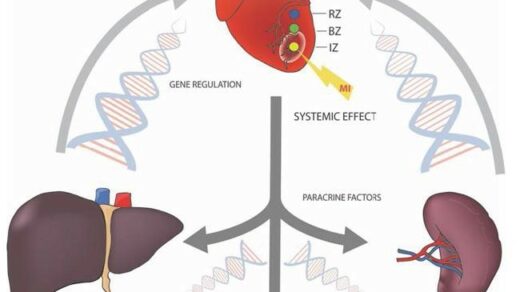Researchers investigated potential therapeutic culprits of “chemo brain” in a trending new paper published by Oncotarget.

The Trending With Impact series highlights Oncotarget publications attracting higher visibility among readers around the world online, in the news, and on social media—beyond normal readership levels. Look for future science news about the latest trending publications here, and at Oncotarget.com.
—
A type of mental fog—known as “chemo brain”—is widely experienced by patients who have undergone cancer treatment. Cancer research institutions define chemo brain as impaired cognition, including cloudiness, memory loss and/or lack of concentration, that occurs before, during and/or after cancer treatment. This condition can negatively impact quality of life in a significant way. Chemo brain not only affects recovering individuals but also their loved ones, who often must take on additional caregiving responsibilities. Despite the name, chemotherapeutic drugs may not be the only treatments responsible for chemo brain.
A chemotherapy protective drug called amifostine is commonly used in patients and paired with chemotherapeutic agents. Amifostine functions to protect healthy cells from DNA double strand breaks (DSBs) induced by chemotherapy. Another commonly prescribed cancer treatment is called etoposide, which is a chemotherapeutic drug that also targets DSBs. Etoposide, on the other hand, functions to increase DSBs in cancer cells. Recently, researchers have suggested that DSBs could play a role in learning, memory and immediate early gene (IEG) expression. The activity of IEGs can be used to identify neural circuits involved in learning and memory processes.
“Despite their wide clinical use, there is little information about how amifostine and etoposide affect learning and memory.”
The Study
Researchers from Oregon Health and Science University conducted a novel study to observe the isolated effects of these common DSB-altering agents on learning, memory and IEG expression. Systemic injections of amifostine and etoposide were examined in both male and female mice. Their research paper was published by Oncotarget in January of 2022, and entitled, “Common cancer treatments targeting DNA double strand breaks affect long-term memory and relate to immediate early gene expression in a sex-dependent manner.”
“In this study, we investigated the effects of amifostine and etoposide on hippocampus-dependent and -independent fear conditioning [23] and IEG expression in male and female C57Bl/6J mice.”
Male and female mice were systemically dosed with either saline or the one of the cancer treatments, and then trained in fear conditioning. Markers of contextual and cued memory were tested 24 hours and two weeks post-training. The study consisted of four total experiments. The first experiment examined the effects of pre-training cancer treatment injections on long-term memory. The second experiment examined the effects of post-training cancer treatment injections on long-term memory. The third experiment examined the effects of pre-training injections on cFos and Nicotinamide adenine dinucleotide phosphate (NADPH). (Increasing and inhibiting the activity of NADPH oxidase impairs learning and memory.) The fourth experiment examined the effects of pre-training cancer treatment injections on DSBs.
“Hippocampal cFos and ΔFosB are essential for contextual learning and hippocampal synaptic plasticity [12, 13].”
Results
The researchers found that pre- and post-training injections of amifostine at 107 mg/kg increased long-term contextual, but not cued, freezing in male mice. Amifostine decreased hippocampal DSBs, although it did not not change cFos levels in either male or female mice. The researchers observed that post-training injections of etoposide led to long-term decreases in both contextual and cued freezing among female mice. Etoposide decreased hippocampal NADPH in females and hippocampal DSBs in both sexes. Overall, etoposide decreased hippocampal γH2Ax (a DSB repair marker), hippocampal NADPH and cortical cFos in a sex-dependent manner.
“Post-training injections of amifostine affected long-term contextual fear memory; etoposide affected contextual and cued fear memory.”
Conclusion
“Our results suggest that amifostine and etoposide have distinct effects on learning and memory dependent on sex and timing of administration.”
The researchers assessed the effects of these DSB-altering agents and found results suggesting that they have a direct impact on learning and memory. Their impacts varied on the basis of sex and timing of administration before or after training. The researchers suggest that future studies examine these effects on specific brain regions to clarify the underlying mechanisms driving learning and memory changes.
“Newer analogs of these drugs, such as PrC-210 [45], might reduce these side effects and improve patients’ quality of life. Future investigations are warranted to determine the role of DSBs in encoding, retrieval, and reconsolidation, and further our understanding of learning and memory processes in health and disease.”
Click here to read the full research paper published by Oncotarget.
ONCOTARGET VIDEOS: YouTube | LabTube | Oncotarget.com
—
Oncotarget is a unique platform designed to house scientific studies in a journal format that is available for anyone to read without a paywall making access more difficult. This means information that has the potential to benefit our societies from the inside out can be shared with friends, neighbors, colleagues, and other researchers, far and wide.
For media inquiries, please contact media@impactjournals.com.




